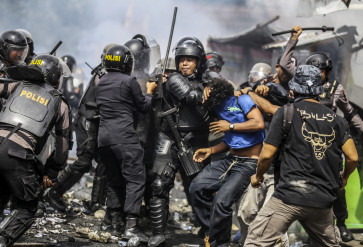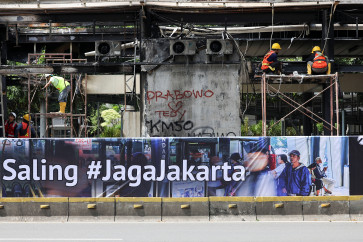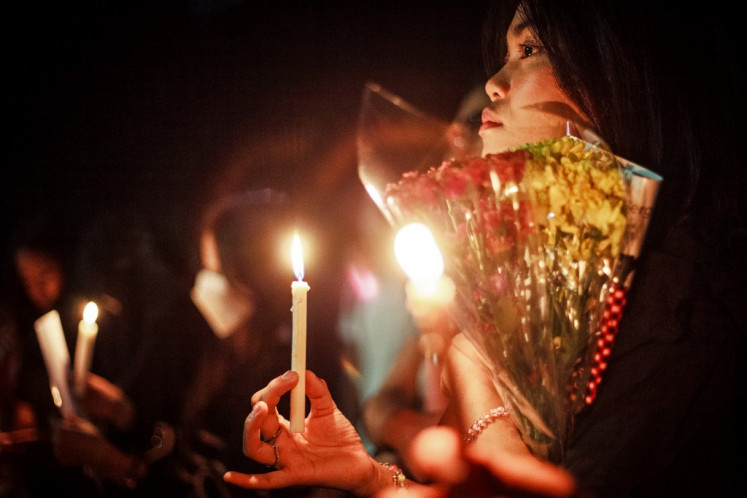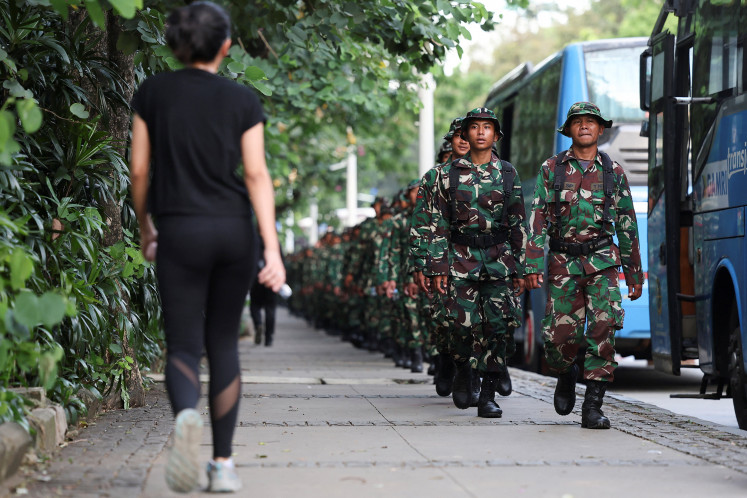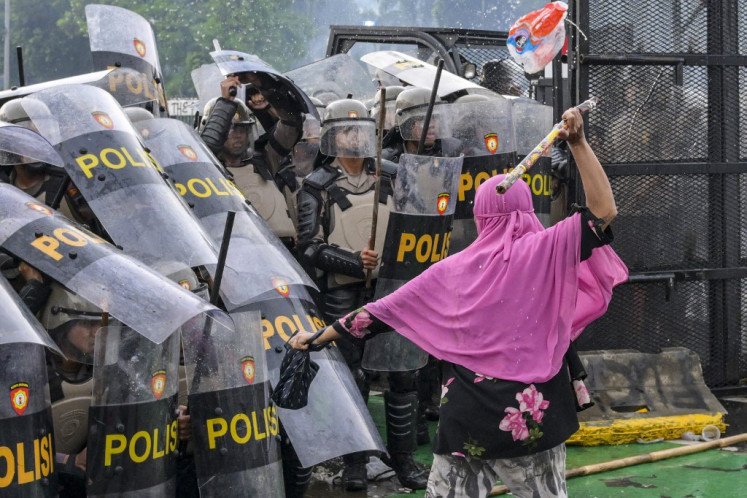Popular Reads
Top Results
Can't find what you're looking for?
View all search resultsPopular Reads
Top Results
Can't find what you're looking for?
View all search resultsMillennials preserve ‘nyekar’ tradition
Once a year, before entering the Ramadhan fasting month, people in Greater Jakarta flock to graveyards throughout the capital where their ancestors and family members were laid to rest
Change text size
Gift Premium Articles
to Anyone
O
nce a year, before entering the Ramadhan fasting month, people in Greater Jakarta flock to graveyards throughout the capital where their ancestors and family members were laid to rest.
Visitors pay their respects and symbolize their loving remembrance of those deceased by spreading flower petals on top of graves and pouring rose water in front of them.
This tradition, called nyekar, has been inherited for generations by Indonesian Muslims, including millennials in Jakarta.
On Thursday, while Christians observed the Ascension Day of Jesus Christ, hundreds of Muslims swarmed the Karet Bivak public cemetery in Central Jakarta to carry out the ritual. The Ramadhan month is expected to begin on Saturday.
“It’s always a relief to visit my late grandfather. Although we can still send our prayers from home, coming directly to his grave always gives a different feeling,” said 23-year-old writer Azalia Amadea, a resident of Pancoran in South Jakarta.
She visited the final resting place of her grandfather, who passed away in 2012, along with her parents.
Nyekar is an old tradition that has continued for generations in her family, Azalia said. Her parents take her and her little brother to cemeteries at least once a year to introduce them to their ancestors, although she never met them in person.
“I don’t know all of them, particularly the older generations because they had already passed away when I was born,” she said.
While Azalia still has the chance to perform nyekar with her parents, the same cannot be said for Novita Aliyah, 30, who lost her mother in 2012 and her father in 1990.
Ever since her mother passed away, visiting graveyards has been an emotional experience for Novita.
“It’s been five years since my mother passed away, but I can still remember all the guidance she gave me,” she said, wiping away tears while visiting her mother’s grave at the Karet Bivak cemetery.
“I believe every success that I earn in life is because of my parents’ prayers.”
Novita now lives in Ciledug, South Tangerang, with her husband and 11-month-old son.
When her mother was still alive, she constantly reminded Novita not to fall into deep grief when someone she loved passed away.
“She even told me not to place frangipani flowers and not to pray for the deceased, because it could be categorized as bid’ah,” she said.
In Arabic terminology, bid’ah means a heresy, which is not part of Islamic teaching, and is, therefore, forbidden.
For Indonesians, the tradition of nyekar remains controversial. Some people believe it is permissible as it serves as a reminder of the afterlife, while others believe it is forbidden, particularly if it is aimed at asking something from the spirits of the deceased.
Unlike Novita who still carries out the nyekar tradition despite her mother’s warnings, banker Iyan Nopiyana, 26, prefers not to after learning from religious clerics that the Prophet Muhammad did not practice the ritual regularly in his life.
“But I can’t say it’s wrong. It’s OK if people want to visit their loved ones,” he said.
Furthermore, Iyan said most of his ancestors were buried in Rangkas Bitung, Banten, whereas his house was in Tangerang, making it difficult for him to perform the ritual.
While some people, including millenials, still perform the nyekar tradition, Jono Sutiyono, 48, a parking attendant at the Karet Bivak cemetery, said the number of visitors this year had drastically decreased compared to previous years.
“People are usually jostling here,” he said.


